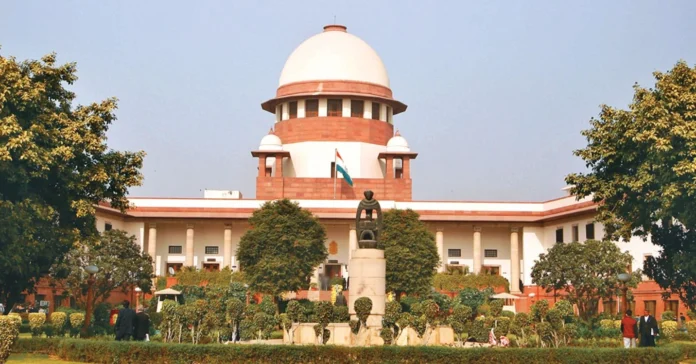The Supreme Court of India has expressed serious reservations over certain provisions of the Uttar Pradesh Prohibition of Unlawful Conversion of Religion Act, 2021, observing that they may impose excessive restrictions on the individual’s freedom of religion and privacy.
A bench comprising Justices J.B. Pardiwala and Manoj Misra made the observations while hearing petitions challenging the validity of the anti-conversion law, which was enacted with the stated aim of preventing conversions through coercion, allurement, or fraud.
During the hearing, the bench noted that the procedural requirements mandated under the Act appear to be “very onerous” for individuals who wish to change their religion voluntarily. Under Section 8 of the Act, any person intending to convert must provide a declaration to the district magistrate at least sixty days before the conversion, confirming that the decision is being made without force, inducement, or deceit. Likewise, the person officiating the conversion ceremony must also submit a similar declaration thirty days in advance. Failure to comply with these provisions attracts penalties, including imprisonment of up to three years and fines of not less than ten thousand rupees.
The judges observed that such provisions may infringe upon the personal liberty and freedom of conscience guaranteed by the Constitution. The requirement of prior intimation to a district authority, they pointed out, effectively subjects an individual’s personal belief and spiritual choice to state scrutiny.
The bench also took note of the provision requiring a post-conversion declaration, which obliges the newly converted person to submit details such as their permanent address, the date and method of conversion, and other particulars within sixty days. The law further requires that the individual personally appear before the magistrate within twenty-one days to verify the declaration, which must then be publicly displayed by the authorities.
The Court observed that this framework raises significant concerns about the right to privacy, as recognized in the landmark judgment of K.S. Puttaswamy vs Union of India. Public disclosure of a person’s decision to adopt a new faith, the bench remarked, could expose individuals to social hostility, discrimination, or harm, particularly in communities where such decisions remain sensitive or controversial.
The mandatory police inquiry into every proposed conversion, as required by the Act, was also described as an intrusive step that may not align with the spirit of personal autonomy and freedom of belief protected under Article 25 of the Constitution.
Justice Pardiwala noted that India’s secular fabric is built on the principles of equality and freedom of conscience, and that the State must remain neutral in matters of personal faith. Any legislation regulating religious conversion, he remarked, must operate within the bounds of constitutional guarantees and cannot compel citizens to disclose or justify their spiritual decisions before state authorities.
The Court emphasized that the right to choose one’s faith is an integral part of the freedom of religion and the broader right to privacy and human dignity.
While the bench clarified that it was not adjudicating the constitutionality of the entire Act at this stage, it signalled that several provisions warranted closer judicial scrutiny. The Court remarked that the pre- and post-conversion declaration requirements, coupled with the role of the district administration and police, may go beyond what is necessary to prevent unlawful conversions and could instead act as deterrents to legitimate exercise of faith.
The observations have renewed the debate around anti-conversion laws in India, which several states have enacted with similar procedural frameworks. Critics argue that such legislation often weaponizes administrative oversight to restrict voluntary religious choice, while supporters maintain that it is necessary to prevent exploitation and fraudulent conversions. The Supreme Court’s remarks, however, suggest that the balance between protecting individuals from coercion and preserving their fundamental rights must be carefully maintained.
The comments by bench have set the stage for a deeper constitutional discussion on the limits of state power in regulating religion. The Court’s intervention serves as a reminder that India’s commitment to secularism and individual liberty cannot coexist with laws that compel citizens to seek state permission for their beliefs. The petitions challenging the law will be heard further, but the Court’s preliminary remarks already indicate that the Uttar Pradesh Act may face a significant constitutional test in the days to come.


